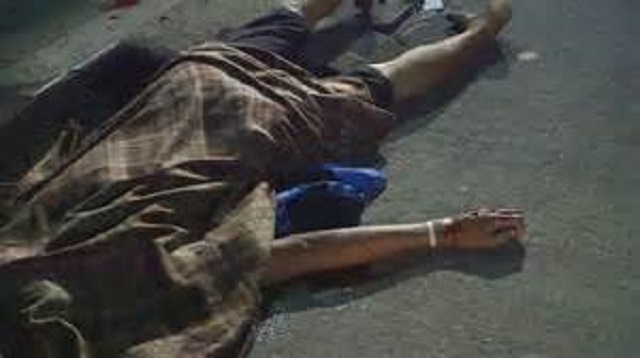Seek treatment early

I hope I find you well and in good health.
The country has been recording an alarming increase in Covid-19 cases and fatalities in recent weeks. The vaccination programme has been rolled out on a large scale with a great uptake from all Zimbabweans. The message on the benefits of the vaccine and possibly the fear of death seems to have made the populous queue for their jab more willingly.
Covid-19 has been merciless to communities that has thrown all care to the wind. Human nature is hard to deal with, let alone control. We still have citizens who decide to expose everyone by inappropriate mask usage and some not even wearing their masks. Funerals are ‘hot spots’ causing major spread of the infection. These dynamics make vaccines relevant to the fight against the Covid-19 pandemic. There are various classes of vaccines that are being used locally and have been noted to be effective.
The ultimate goals of the vaccination programme are to reduce: severity of infection, rate of hospitalisation and deaths from Covid-19. This is done by making the body recognise the virus upon infection and mounting a defence thus preventing spread and symptom severity in the infected. Without vaccination the Covid-19 infection spreads before the body recognises and mounts a defence.
In Seychelles, the chain of islands off the east coast of Africa, over 70% of the population has received at least one dose, and 63% have been fully vaccinated since the rollout began in January of 2021. It has vaccinated more people per head against Covid-19 than any other country, but has experienced a spike in cases. She has a population around 100 000 people.
Seychelles is viewed as having conducted a very successful vaccination rollout so far; it can boast having the highest share of people vaccinated against Covid-19 anywhere in the world, above Israel and the UK. The first vaccine to be used was the Chinese-made Sinopharm, using doses donated by the United Arab Emirates. The other vaccine used is the AstraZeneca vaccine. It was not known by the time of writing how many out of those fully vaccinated people who tested positive for Covid-19 had received Sinopharm, and how many had been given AstraZeneca.
However, Dr Jude Gedeon, the country’s health commissioner recently stated that about two-thirds of those who tested positive largely had mild or no symptoms. Of those who needed admission to hospital, 80% were people who hadn’t been vaccinated, and a majority of these also had other health conditions. Dr Gedeon, believes the rise in cases could be as a result of increased economic activity.
On March 25, 2021, Seychelles announced that visitors could enter without the need to quarantine, although a negative Covid-19 test was still needed and entry restrictions apply for some countries. Restrictions were relaxed, including the reopening of restaurants and the resumption of school classes. Officials have also suggested Easter celebrations may have contributed, along with people dropping their guard against the possibility of infection, having received one or more doses of the vaccine.
The ministry noted that, of the patients requiring hospital treatment, 80% had not been vaccinated and tended to be people with co-morbidities. It added that “almost all” of the critical and severe cases requiring intensive care treatment had not been vaccinated either. To date, none of the patients who have died with Covid-19 have been fully vaccinated.
Speaking on Seychelles, WHO’s Director of Immunisation, Vaccines and Biologicals, Dr Kate O’Brien, said “As was noted, the vaccines are highly efficacious against severe cases and deaths. Most of the cases which have occurred are mild cases. However, what is also important is that a substantial fraction, over 80% of the population, has been vaccinated. But as we know … some of the cases that are being reported are occurring either soon after a single dose, or soon after a second dose, or between the first and second doses.”
WHO has repeatedly warned that vaccination alone would not be enough to stop the pandemic in its tracks, but would rather be another weapon in the arsenal to fight the virus.
The situation faced by island acts as a reminder that no coronavirus vaccine currently in use has been proven to be 100% effective at preventing Covid-19 infection. Still, all the vaccines currently authorised for use by the WHO have proven to be very, if not extremely, effective at preventing serious Covid-19 infections, with cases, hospitalisations and deaths greatly reduced in countries with advanced vaccination programmes, like the UK.
An expert at Hopkins explains: “All RNA viruses mutate over time, some more than others. For example, flu viruses change often, which is why doctors recommend that you get a new flu vaccine every year.” Researchers have preliminary evidence that some of the new variants seem to bind more tightly to our cells. It may be more advantageous for a respiratory virus to evolve so that it spreads more easily.
Symptoms of the new variant are largely the same as we have been seeing before, they include;
fatigue,
muscle or body aches,
headache,
a sore throat,
congestion or runny nose,
sneezing,
loss of smell,
Muscle cramps.
When unwell seek treatment early and self-isolate to protect your family. Till next week, stay safe.
Dr Tatenda Simango can be contacted on [email protected] or follow him on Facebook@ 9th Avenue Surgery











Comments